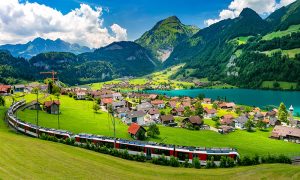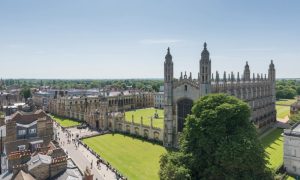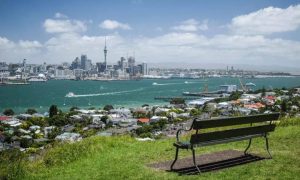worldwideimmigrantsToday, when choices are increasingly diversified, more and more Chinese families are looking to the Nordic countries, especially those known for their high welfare, livable environment and quality education.Norway. If you're thinking about moving to Europe as a family, this article will give you theComprehensive analysis of the 2025Norwegian immigration policyThe process of family reunification, educational resources for children, and family reunificationIt helps you to make rational and workable immigration decisions.
I. Why more and more families are choosingImmigration to Norway?
Norway is not traditionally a hotspot for Chinese immigrants, but in recent years it has become an ideal destination for families with several advantages:
-
Free, high-quality public educationincluding university level
-
Strong child welfareCovering benefits, medical care, childcare, etc.
-
Good air, good security and social inclusion
-
Relatively relaxed family reunification policyThe family will be able to settle down together.
-
A very humane social environment for the development of young people
Compared to other countries in Europe and the United States, Norway has a slower pace of life and a cleaner environment, making it a "natural place" for children to grow up.
Second, 2025 Norway family reunification immigration policy in detail
✅ Applicable to
A family reunification visa is primarily intended for individuals who are already legally residing in Norway (including work visa holders, international students, permanent residents or Norwegian citizens) and who wish to bring their family members to live in Norway on a long-term basis.
Family members who can be reunited include:
-
Spouse/Registered Partner/Cohabiting Partner
-
Children (under 18)
-
Parents in certain cases (especially minor orphans or dependent elderly)
✅ Main application requirements
-
The principal applicant is legally residing and has a fixed abode in Norway
-
Meeting income requirements: Standard for 2025 approx. NOK 320,000 (annual income)
-
Provide proof of marriage/relationship, copy of passport, etc.
-
Family members have no serious criminal record and are in good health
⏱️ Processing cycle
Usually 3 to 6 months, and you can choose whether or not to submit your residence permit at the same time when you apply.
🔄 Continuing and Transferring Permanent Residence
Family reunification visas are granted for a period of one year and are renewable. After 3 years of continuous legal residence, there is an opportunity to apply for permanent residence; after 7 years, one may apply for Norwegian citizenship (conditions depend on status).
III. List of educational resources for Norwegian children
Norway is one of the world's top-ranked countries in terms of the quality of education, with a particular emphasis onAll-round development, free thinking and social integration of studentsThe
🏫 Pre-school education (Barnehage)
-
Kindergarten (nursery school) for 1-5 year olds
-
Public kindergartens are low-cost, government-subsidized and virtually free for low-income families
-
Emphasizes nature education, playful interaction and emotional development
🧒 Compulsory education (ages 6 to 16)
-
Public primary and junior high school education is completely free of charge
-
The curriculum is centered on "heuristic teaching" and focuses on environmental protection, civic awareness and social responsibility.
-
There are "language adaptation classes" for international students to ease the transition.
🎓 High school and university education
-
Upper secondary school is non-compulsory, but enrolment is high
-
The university is almost completely free of charge and is open to international students for English language programs.

-
Students can apply for government grants and loans and do not give up their studies due to financial conditions.
✅ Language of education
Although Norwegian is the mainstream language of instruction, children of immigrants receiveSpecialized Language Support, most young people can be successfully integrated into the general education system within one to two years.
IV. Child Development Welfare and Family Support Systems
The Norwegian Government provides a strong set of family support systems to ensure that children grow up with healthy, safe and fair opportunities for development:
💰 Child allowance
Each child receives approximately NOK 1,354 per month (2025 rate), which is payable until the age of 18.
🧾 Medical benefits
-
Free access to basic health care for all children
-
Vaccines, routine check-ups, public dental services are essentially free of charge
-
Nursery nurses make regular home visits to monitor the growth of infants and toddlers.

👩👩👦 Family Vacation Policy
-
Combined parental leave for parents is approximately 49 weeks (paid)
-
Workplaces may not dismiss employees for childcare reasons
-
The concept of equal parenting between men and women is deeply rooted in people's minds
These systems ensure that childcare in Norway is not only safe but also "systematically guaranteed", and that the "State helps you to raise your children" is truly realized.
Five,Norwegian family immigrationPractical advice
-
Language is key: It is recommended that parents adapt to the Norwegian language in advance, as this will be of great benefit in their future lives; children generally adapt more quickly.
-
Early planning of educational pathways: Learn about local school districts and enrollment arrangements when you immigrate to facilitate a smooth transition.
-
Authentic living is important: Immigration policies are being tightened and must reflect the family's intention to "live in the real world for a long time".
-
Social integration mentality: Respect for local culture and participation in community activities contribute to the mental health of children.
Conclusion:
Norway is not the easiest country to immigrate to, but isOne of the best destinations for long-term family settlementsNorway in 2025 will continue to be an ideal place for families looking for a "change of lifestyle". From quality education to thoughtful childcare benefits, from reunification policies to real living conditions, Norway in 2025 is still an ideal place for families looking for a "change of lifestyle" to seriously consider.






